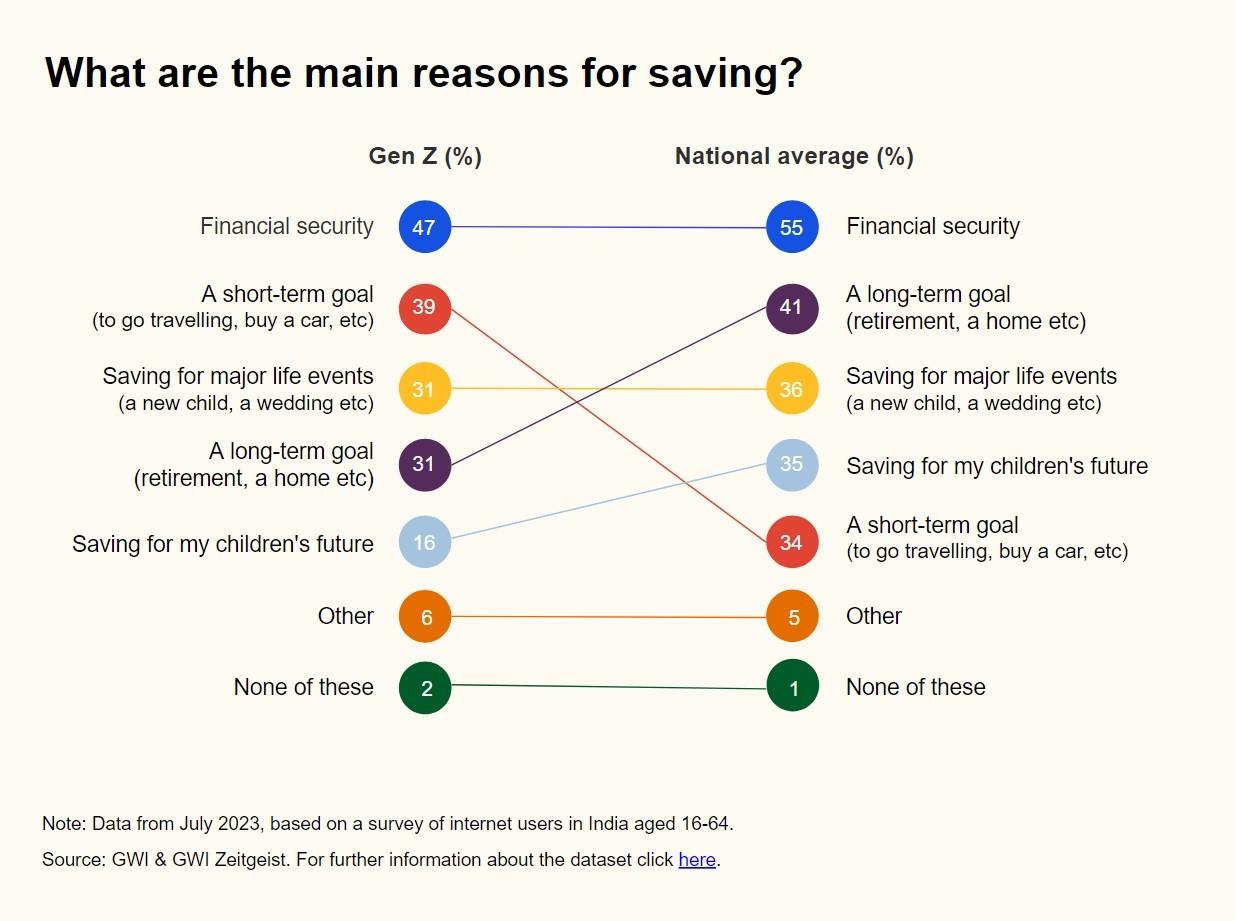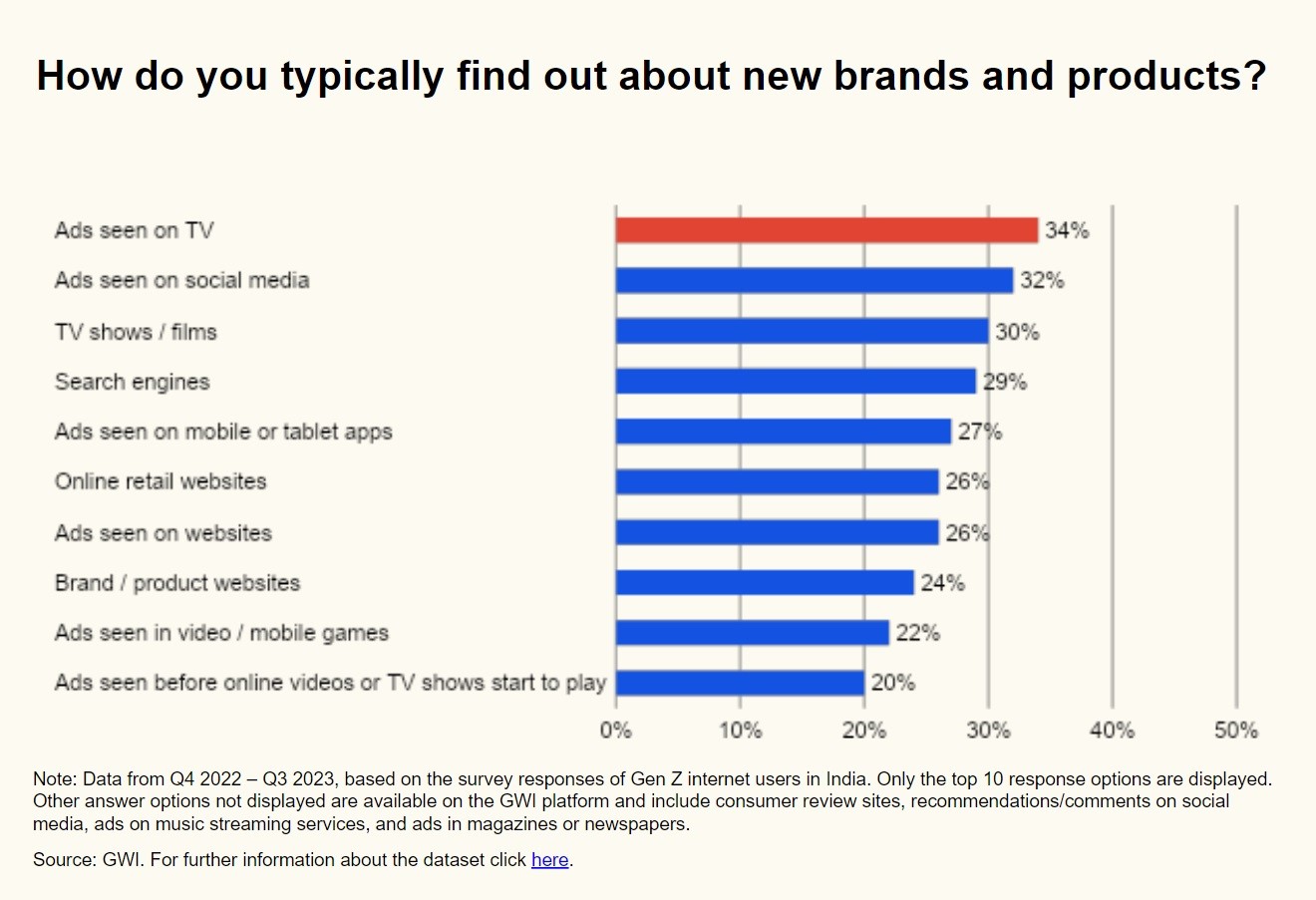Gen Z in India never ceases to surprise. They are trendsetters who buck tradition and in this Spotlight India series on “Decoding the Indian Gen Z”, WARC India Editor Biprorshee Das analyses their behaviours and habits, needs and preferences, and how brands and marketers can better engage them.
This article is part of a Spotlight series on India's Gen Z. Read more
The moment we chose the theme for this Spotlight India edition, I immediately knew what quote encapsulated this story – the famous one by George Orwell on the generation gap. Incidentally, one of the contributors to the edition thought so too.
“Every generation imagines itself to be more intelligent than the one that went before it, and wiser than the one that comes after it.”
“Decoding India’s Gen Z” – our latest Spotlight India edition – offers a peek into a subject that has been a very important one on the list of our readers. Understandably so. Meta emphatically states the Gen Z in India are trendsetters. Be it any category, the Indian “zoomers” are all about exploring and embracing emerging trends. Over 100 million Gen Z consumers in India are redefining norms, making it a group very hard to ignore when chalking out marketing strategies.
Typing this, I stumbled upon a Facebook update by my friend, Ashraf Engineer, who also heads brand strategy at Ideosphere. He shared:
“Over the weekend, I was part of the admissions panel for the Symbiosis Institute of Media and Communication (SIMC). I asked several of the candidates what their favourite brand was and the answer nine times out of 10 was, to my surprise and delight, Amul. These are people in their early 20s and I thought they’d name Apple or Nike. Instead, we have a decidedly unsexy but endearing dairy brand. I think it’s pretty cool that Amul has stayed relevant to successive generations.”
To me, this is what endears, that the generation never ceases to surprise. Yes, they are setting new trends but they haven’t particularly turned their backs on tradition either. This dynamism in the Gen Z behaviour makes them a challenging yet exciting cohort to engage. Hence, in this edition, we are looking at some such key themes like money habits, identity crisis and content consumption patterns.
Confidence enabled by informed opinions
One of the key things on the minds of many marketers is what sets Gen Z apart from previous generations, especially mine. We would be condescending at our peril because this cohort in India that forms a major part of the world’s youth knows what it is doing; they have their perspectives and they stand firmly by them. Manisha Sain, head of strategic planning at The Womb Communications, noted:
“Fiercely self-reliant, every time the Gen Z is figuring something out on their own, they are triggering the experience-dependent habit of small wins.”
But every generation has perceived itself to be more self-reliant than the previous one (Orwell, UNO reverse!), hasn’t it? This aspect becomes more important when you consider that India's Gen Z has access to a lot more information than previous generations. It is the age of smart devices, high-speed internet and shrinking world, after all. The average 20-year-old Indian is being exposed to global affairs a lot quicker. He/she is no longer waiting for a detailed analysis of a development; he/she is learning about recession, government policies, wars, pandemics as they pan out.
So when information is accessed and opinions set, they are quick and a lot more informed than before. Why, then, would this generation not be the most confident of all?
Purchasing power: have money, will spend… NOW!
As a key cohort for consumer consumption, it becomes important to understand not just this demographic's spending and saving habits but how they perceive the concept of money and wealth.
Sain, in her article, mentioned how millennials remain conflicted between needs and affordable indulgences. The zoomers don’t feel this conflict.
According to our consumer data report, while financial security remains the generation’s top priority just like for the rest of us, they save for very different reasons – an important point of distinction. They put short-term goals above long-term ones. They want to travel, buy a car, afford luxuries immediately; retirement can wait.

The strategy team at McCann Worldgroup India reaffirmed this notion in its contribution to this edition.
“Gen Z in India is making its money work hard. Case in point – investments. The rise of user-friendly investment apps is making markets more accessible and even gamified for them.
“But their desires need their finances to stretch further. Far more exposed and influenced to trends and brands, Gen Z do not believe as strongly in traditional conservative values and are happy to spend on things they might not be able to afford.”
More than just digital natives
It is easy to dismiss the generation as an impulsive one that is glued to technology. A penny for each time “digital native” will be used in a discussion about this group.
This particular label makes it easy for one to assume that the most effective way of reaching them is through digital channels. This also limits the way marketers can engage with them.
Our data report shows how the Indian Gen Z is discovering brands across both old and new channels – an important consideration for marketers when considering their media mix.

The need to stand out in a collectivist society
Confidence aside, we find this is also a generation that is becoming increasingly aloof while the world comes together. Again, this isn’t something unique. Maybe we all feel the same. All of us all the time or maybe sometimes go through a feeling of disconnect in this hyper-connected world. What is Gen Z in India struggling with in particular, then? A distinct identity, perhaps. An urge to not be stereotyped.
As mentioned earlier, Indian Gen Z wants marketers to understand them beyond the digital native label. This manifests not just through their media habits, but how they perceive themselves.
Kantar’s Sandeep Dutta rightly pointed out:
“For Gen Z, the key point is not to define themselves through only one stereotype but rather for individuals to experiment with different ways of being themselves and to shape their individual identities over time. Skilled at adapting to diverse situations, they celebrate fluidity and are a product of the situation in which they find themselves.
“This is a generation that has fully embraced bricolage, using all that comes to hand to build something greater than the sum of its parts. This genre-less generation isn’t wired to have one single personality that is carried across all corners of the online world. Instead, they build, tear down and rebuild ways of presenting themselves that fit best with whatever it is that they are doing, saying or making at the time.”
According to him, this is a generation that within the realm of a connected world fiercely guards its individuality and wants the same to shine through.
There could be a global fluid identity but for the Indian youth, there is an added sense of pride at play that it is only too happy to flaunt, thereby standing out. This especially with how at a global stage, India is being looked at more seriously than ever before. Our previous edition of Spotlight India threw more light on this.
When beginning work on this edition, I knew this theme was expansive. To understand the Indian Gen Z better will need more than just a few thought-provoking articles. We begin with conversations around the generation’s behaviour and habits; I know we will continue to keep a sharper focus on the demographic discovering more insights. Here’s hoping you find this edition interesting.
Read more in this Spotlight series
How Indian Gen Z desires individual expression in a collectivist society
Sandeep Dutta
Kantar
Why luxury is not reverential to the Indian Gen Z
Jitender Dabas, Ankit Vohra and Omanshi Sabharwals
McCann Worldgroup India
How Indian Gen Z's self-reliance and confidence help marketers
Manisha Sain
The Womb Communications

